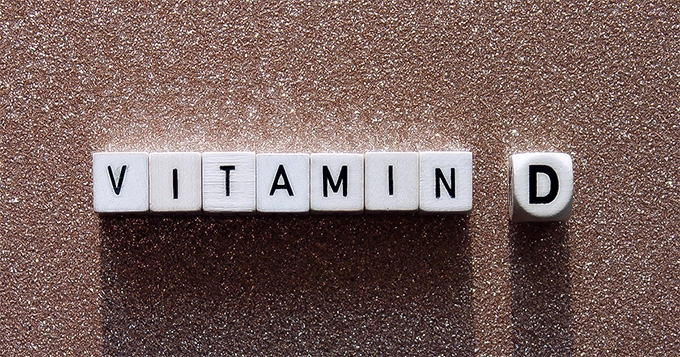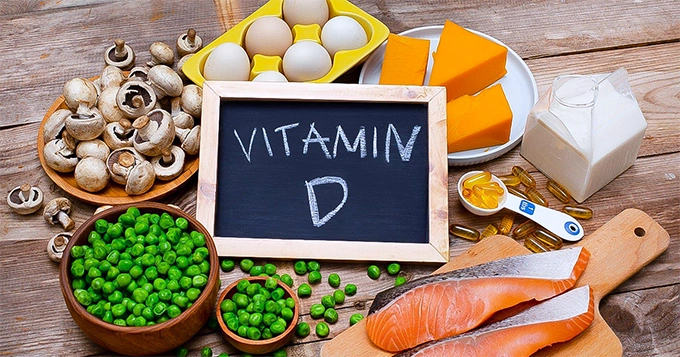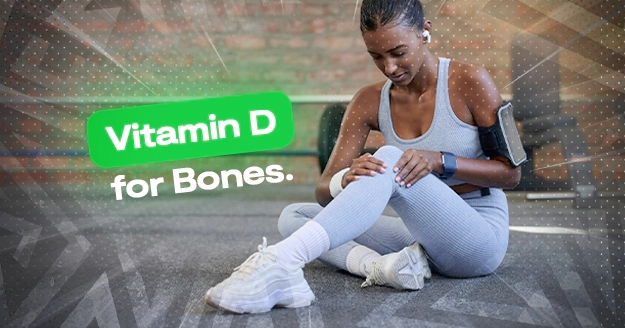What is Vitamin D?
Vitamin D is a nutrient that we eat and also a hormone that our bodies make. It is a fat-soluble vitamin that helps the body absorb and retain both calcium and phosphorus. These minerals are critical for building bone.
Here’s a little trivia for you:
Vitamin D isn’t actually a vitamin. Vitamins are special nutrients the body needs but cannot make. We get them through eating certain foods or drinking supplements. Vitamin D is more of a hormone because our bodies have the ability to make it when we are exposed to good sunlight.
How important is Vitamin D for bone health?
Very important.
Our bodies cannot absorb calcium efficiently, which is necessary for strong bones, without vitamin D.
Bone or joint discomfort, as well as cramping in the muscles, may be more common in those with very low vitamin D blood levels. According to some studies, older adults who take vitamin D appear to fall less frequently, perhaps as a result of improved muscular function.
Vitamin D is one of the important vitamins for bones for adults. A research finding concluded that vitamin D is essential for bone health; with insufficient intakes resulting not only in the classical deficiency diseases of rickets and osteomalacia but also in increased bone metabolism and enhanced fracture risk.
Other Benefits of Vitamin D
Aside from getting enough vitamin D for bone health, vitamin D can also help with other aspects.
It strengthens the immune system.
Infections and autoimmune disorders such as type 1 diabetes, rheumatoid arthritis, and inflammatory bowel disease may be more common in those with inadequate vitamin D levels.
It may improve brain function.
Some evidence suggests that vitamin D deficiency may hasten age-related cognitive decline and that vitamin D may help sustain cognitive function.
It can boost your mood.
Based on some research, vitamin D may be crucial in regulating a person’s mood and lowering the incidence of depression.
It can aid in weight loss.
In one study, obese adults lost more weight and fat mass when they got vitamin D supplements in addition to following a weight reduction diet plan than those in the placebo group who simply adhered to the diet plan.
Additionally, some experts hypothesize that the additional vitamin D and calcium may have an appetite-suppressing effect.
It can reduce the risk of heart disease.
Having lower levels of vitamin D has been associated with a higher risk of heart conditions such as hypertension, heart failure, and stroke. However, it’s uncertain if a vitamin D deficiency causes heart disease or only signals ill health when a chronic problem is present.
It can reduce the risk of multiple sclerosis (MS).
Having lower levels of vitamin D is associated with a higher risk of multiple sclerosis, according to an analysis of population-based research.
How to get Vitamin D?
Sun. Go outside and expose your skin to sunlight. A natural way to get enough vitamin D is through regular sun exposure. Several times every week, try to get 10 to 30 minutes of midday sunlight. Those with darker complexion may require a bit more. However, some experts recommend that you wear sun protection.
Supplements. While it is feasible to take enough vitamin for bones once a week to keep yourself balanced, it was shown that a smaller dose (1,000–2,000 IUs or 25–50 mcg) administered daily had the greatest outcomes. Your body will absorb vitamin D more effectively if you take it regularly with a meal that contains healthy fats.
Food. You can increase your consumption of foods that are vitamin D-fortified or naturally high in vitamin D. Though certain meals have been fortified with vitamin D, very few foods really contain it naturally. Vitamin D is naturally not found in many foods. It is present in significant amounts only in some fish.
What are food sources of Vitamin D for bones?
- beef liver
- egg yolk
- canned tuna
- cod liver oil
- herring
- salmon
- sardines
- shrimp
- fortified milk
- fortified yogurt
- fortified cereals
- fortified oatmeals
How do doctors test Vitamin D levels?
A simple blood test will detect any deficiencies. Schedule the test with your lab by speaking with your doctor. The most reliable test to determine how much vitamin D is in a person’s body is the 25-hydroxy vitamin D test.
Can we overdo Vitamin D?
Yes, too much vitamin D can pose some risks.
Having more than 375 nmol/L or 150 ng/mL of vitamin D in your blood is extremely high.
Hypercalcemia or the buildup of calcium in your blood, is the major side effect of vitamin D toxicity. This can cause nausea and vomiting, frequent urination, and weakness.
Conclusion
There are various important roles for vitamin D. Most importantly, controlling calcium and phosphorus intake and promoting healthy immune system function. If you want to have normal growth and development for your bones and teeth, as well as increased disease resistance, getting adequate vitamin D is crucial. Getting enough vitamin D each day from diet and sunlight can be challenging; therefore, taking vitamin D supplements can be helpful.









